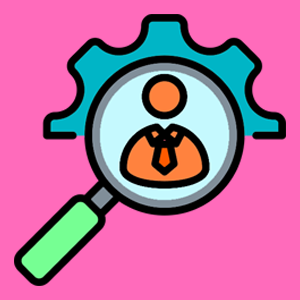 There is currently a lot of talk about the role of AI in marketing, content creation, and customer service, but what about Ai in Human Resources? Well, the integration of Artificial Intelligence (AI) into Electronic Human Resource Management (E-HRM) systems is transforming how organizations manage their workforce. By automating routine tasks and enhancing decision-making capabilities, AI-powered E-HRM solutions are not only saving time but also driving strategic HR initiatives.
There is currently a lot of talk about the role of AI in marketing, content creation, and customer service, but what about Ai in Human Resources? Well, the integration of Artificial Intelligence (AI) into Electronic Human Resource Management (E-HRM) systems is transforming how organizations manage their workforce. By automating routine tasks and enhancing decision-making capabilities, AI-powered E-HRM solutions are not only saving time but also driving strategic HR initiatives.
Understanding E-HRM and AI Integration
E-HRM refers to the use of technology to execute HR functions such as recruitment, payroll, training, and performance management. The integration of AI into these systems takes it a step further by enabling advanced capabilities like predictive analytics, natural language processing (NLP), and machine learning (ML).
For example:
- Automated Resume Screening: AI algorithms analyze resumes at lightning speed, filtering candidates based on predefined criteria, significantly reducing the time HR teams spend on manual screening.
- Chatbots for Employee Queries: AI-powered chatbots handle routine employee inquiries 24/7, providing quick and consistent answers to common HR questions, such as leave policies or benefits details.
- Personalized Learning Paths: AI-driven learning management systems recommend customized training modules based on an employee’s performance, skills, and career aspirations.
Automating Routine Tasks: Efficiency Redefined
One of the most significant impacts of AI in E-HRM is the automation of repetitive tasks. By offloading mundane activities to AI, HR professionals can focus on more strategic responsibilities.
Examples include:
- Attendance and Time Tracking: AI-enabled systems automate attendance tracking and integrate with payroll to ensure error-free compensation.
- Onboarding Processes: Virtual onboarding assistants guide new hires through orientation processes, ensuring a seamless transition while reducing HR workload.
- Performance Review Automation: AI tools analyze performance metrics and generate detailed reports, helping managers make informed decisions.
Enhancing Decision-Making with AI Insights
AI’s ability to process large datasets and provide actionable insights is revolutionizing HR decision-making. Here’s how:
- Workforce Analytics: AI identifies patterns in employee performance, engagement, and attrition, enabling HR teams to proactively address issues.
- Diversity and Inclusion Metrics: AI tools measure diversity indicators and suggest improvements to hiring practices, fostering a more inclusive workplace.
- Succession Planning: AI predicts potential leadership gaps and identifies high-potential employees for future roles.
Overcoming Challenges in AI-Driven E-HRM
While the benefits are clear, integrating AI into E-HRM systems isn’t without challenges:
- Data Privacy: Handling sensitive employee data requires robust security measures to prevent breaches.
- Bias in Algorithms: Ensuring that AI tools are free from biases that could influence hiring or promotion decisions is critical for fairness.
- Change Management: Implementing AI requires significant cultural and operational shifts, necessitating thorough change management strategies.
The Future of AI in E-HRM
As AI technologies evolve, their role in E-HRM systems will only grow. We can expect:
- Enhanced Predictive Analytics: AI will offer even more precise predictions regarding employee turnover, engagement, and productivity.
- Real-Time Employee Wellness Monitoring: Advanced AI could analyze behavioral patterns to identify stress or burnout risks, enabling timely interventions.
- Greater Personalization: AI will deliver hyper-personalized employee experiences, from tailored benefits to career pathing.
Conclusion
The intersection of AI and E-HRM marks a new era in human resource management. By automating routine tasks and empowering HR professionals with data-driven insights, AI is not just streamlining processes but also shaping the strategic role of HR in organizational success. As businesses continue to adopt these technologies, the key lies in balancing efficiency with ethical considerations, ensuring that AI serves as an enabler of fairness, inclusivity, and employee well-being.
